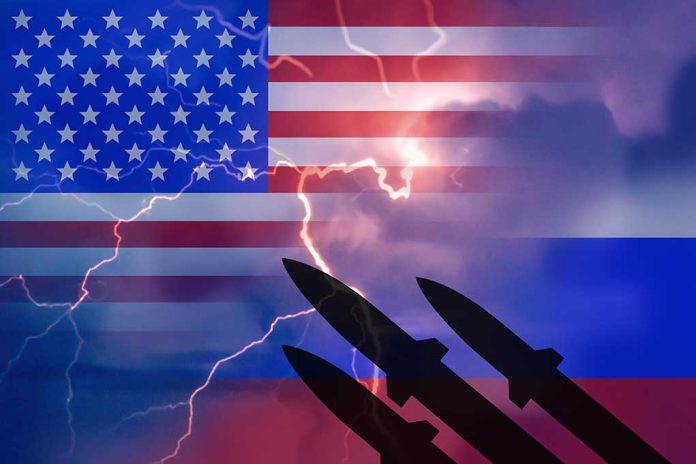
In a move that has ushered in a new era of foreign policy debate, the U.S. has stepped back from an international body probing Russia’s alleged aggressions against Ukraine, raising both global eyebrows and strategic concerns.
Key Takeaways
- The U.S. has withdrawn from the International Center for the Prosecution of the Crime of Aggression (ICPA) investigating Russia’s invasion of Ukraine.
- This decision marks a shift from the Biden administration’s commitment to hold Russia accountable.
- The withdrawal aligns with Trump’s efforts to ease relations with Moscow, potentially impacting U.S.-Ukraine diplomacy.
- Amnesty International reports ongoing concerns about Russian treatment of Ukrainian POWs and civilians.
U.S. Withdrawal from ICPA
The U.S. decision to pull out from the ICPA, which seeks to investigate and charge those responsible for Russia’s invasion of Ukraine, signals a shift in its global stance. The body, supported by the European Commission and situated in The Hague, was a key initiative under the Biden administration to uphold international law. Attorney General Merrick Garland had made a significant contribution of $1 million to this organization, underscoring America’s earlier commitment to prosecuting Russian war crimes.
This withdrawal comes amidst the Trump administration’s broader attempt to align closer with Moscow. The administration has reportedly reduced the operational scale of the Justice Department’s War Crimes Accountability Team, which had been providing substantial support to Ukraine’s ongoing investigations.
Impact on U.S.-Ukraine Relations
The Biden administration’s participation in the ICPA, which made the U.S. the sole non-European member, was a clear indicator of its intent to counter Russian military actions. This recent shift could strain relations between the U.S. and Ukraine, given that the Trump administration has also paused military and intelligence support for the war-torn country. The Trump administration’s policy seems aimed at fostering a more amicable relationship with Russia, with ongoing discussions anticipated between the U.S. and Russian leadership.
“The United States stands in steadfast and unwavering support for the people of Ukraine as they defend their democracy against the brutal and unjust war being waged by the Russian regime,” said then-Attorney General Merrick B. Garland on November 14, 2023.
Alongside these diplomatic shifts, reports from Amnesty International have highlighted ongoing Russian human rights abuses, which include torture and inhumane treatment of Ukrainian POWs and civilians. Such evidence continues to paint a dire picture of the situation in Ukraine despite the U.S. withdrawal from international prosecutorial efforts.
Future Implications
As the Trump administration seeks to navigate a complex international landscape, the implications of pulling back from prosecuting Russian aggression are profound. Dialogue between the U.S., Ukraine, and Russia is ongoing, with expectations of a direct call between Trump and Putin. Nevertheless, the decision to step back from the ICPA could raise questions about American leadership in international justice initiatives. For Ukraine, the enduring struggle against Russian military incursions becomes more isolated, challenging its capacity to achieve justice and rebuild.
“Torture takes place in complete isolation from the outside world, with the victims entirely at the mercy of their captors for survival. This is not a series of isolated incidents – it is a systematic policy that violates every tenet of international law,” said Amnesty International Secretary General Agnès Callamard.
Nevertheless, even as the Trump administration looks to end the war diplomatically, the move accompanies significant scrutiny and concern both at home and abroad. Allies and adversaries alike will be closely monitoring how the U.S. recalibrates its foreign policy approaches in the coming months.





